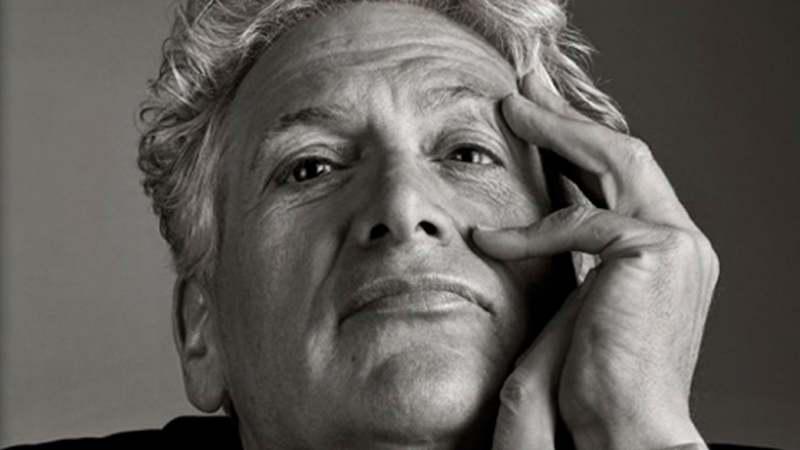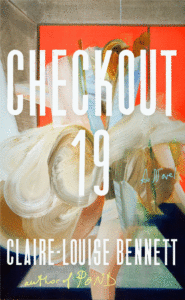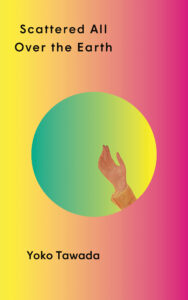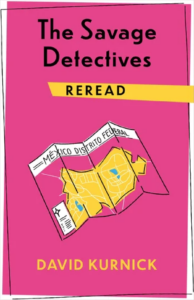
Our trove of terrific reviews this week includes Charles McNulty on Harvey Fierstein’s I Was Better Last Night, B. D. McClay on Claire-Louise Bennett’s Checkout 19, Ryan Ruby on Yoko Tawada’s Scattered All Over the Earth, Natalie Walker on Isaac Butler’s The Method, and Lily Meyer on David Kurnick’s The Savage Detectives Reread.
“… scrumptious … [Fierstein] delivers plenty of dish, some of which leaves a bitter aftertaste. But his writing is most alive in the early years, before he becomes a Broadway institution … A natural storyteller with a yenta’s love of mischief, Fierstein paints a vivid portrait of his youth in Bensonhurst … Fierstein’s dings are often dressed in self-flattery … to his credit, he is often scathingly honest about himself. He writes courageously about his alcoholism … could have used more of this kind of soul-searching. The Harvey Fierstein glimpsed here is tantalizingly, defiantly, irreducibly complex. It’s a pity Sondheim isn’t around to offer the contradictory protagonist of this memoir the musical he deserves.”
–Charles McNulty on Harvey Fierstein’s I Was Better Last Night (The Los Angeles Times)

“… a novel that is deliberate in its construction, down to the individual word, and yet aggressively resistant to definition … Bennett is interested not in the shape of a life but in its substance … Bennett’s narrators are sensualists, exquisitely attuned to taste and to texture, with appetites they prioritize over their own well-being … For them, life is found in sensation: long baths, the sharpness of an orange, underlining their books in jewel-toned inks. They have no clear story to relate to us, but in their strangeness, their sense of ritual, their inability to respond precisely as needed, they draw us in … The prized darkness at the center of the human mind, the place where whatever is really real about us resides, is what Checkout 19 dedicates itself to protecting. There is nowhere to go but inside, and yet what is inside is what must be saved from illumination … It’s also, of course, a good description of Bennett’s writing, which aims to capture experience without revealing its core.”
–B. D. McClay on Claire-Louise Bennett’s Checkout 19 (The New Yorker)

“… mordantly funny … More than simply international, her writing is translingual; she leaves the borders between languages open and allows them to cross-pollinate. To translate her into English is to excavate linguistic strata: Panska reads like a Japonic parody of Nordic syntax translated into a West Germanic language … Each character in Tawada’s ‘band of zigzag travelers’ is given chapters to narrate in the first person. These limited perspectives give rise to a comedy of intercultural misunderstandings that both move the plot forward and provide targets for Tawada’s sharp satire … Judging by the recent migrant crises that informed Tawada’s novel, it is a long-overdue lesson. By the time we are reading the trilogy’s final volume, the climate-fiction scenario Tawada drapes in the trappings of picaresque comedy will no longer seem speculative.”
–Ryan Ruby on Yoko Tawada’s Scattered All Over the Earth (The New York Times Book Review)
“It had long been a catchall phrase for actor-behavior people found pretentious, overly intense, or just old-fashioned annoying, but social media and the rewards it bestows on outlandish pull quotes had divorced ‘the Method’ almost completely from the classification of an actor’s process or training…Everyone was talking about the Method and no one knew what it meant. Thank God, then, that Isaac Butler has arrived just in time with The Method: How the Twentieth Century Learned to Act, a history styled as biography treating the Method as a living, breathing thing with ‘parents, obscure beginnings, fumblings toward its purpose, a spectacular rise, struggles as it reached the top, and an eventual decline’ … The method was the child of the Group, but as the parents bickered, they each left the artistic home of the Group behind, taking with them, à la the Judgment of Solomon, whatever chunk they found most useful. Gruesome? Sure, but as The Method re-minds us at almost every turn, theater can be a bloody business … Misogyny is not necessarily baked into Method techniques, but it heavily influences who is classified as a difficult genius, iconoclast, or ‘Hellraiser,’ and who is branded as more trouble than they’re worth … As an author, Butler accomplishes what the Method’s devotees sought to do in their performances, bringing color and dimension to figures who might have been boxed into archetypal roles (omniscient godhead or exploitative charlatan) and presenting them to us in all their brilliant, infuriating complexity.”
–Natalie Walker on Isaac Butler’s The Method: How the Twentieth Century Learned to Act (Bookforum)

“I discovered the Chilean writer Roberto Bolaño’s work in 2008, which, not coincidentally, was also the year I discovered that the United States had helped deliver his native country into 17 years of ultra-right-wing authoritarianism … Sexiness is central to the Bolaño myth. Sarah Pollack, one of the first scholars to critique the American reaction to Bolaño’s work, wrote in 2009 that US readers are traditionally prone to reducing ‘Latin America [to] a space in which to satisfy one’s desires for rebellions and adventures of all stripes: political, sexual, spiritual, substance-induced, literary.’ No wonder, she continued, that US audiences treated Bolaño as a tragic radical who lived hard and died young … As I continued reading him, though, it became impossible not to notice his refusal to paint himself or his exiled Chilean characters as sufferers, even if some of them are victims. Gradually, I came to see that although evil interested Bolaño deeply, tragedy did not. Nor did the bravery or glamour ascribed to him after his death. Indeed, as I continued researching the intersections of US and Chilean history through college and graduate school, I began to note the irony of Anglo-American readers’ valorizing Bolaño’s brief time as a dissident in Pinochet’s Chile without seeming to emphasize or reflect on their own country’s complicity with the regime … [Kurnick] out to steer US readers onto a new path, one that highlights not Bolaño’s mythologized life story but his miraculous-seeming capacity to create ‘an unbearable sensation of realness’ in his fiction—and, indeed, to reflect the reality of life on the literary and geopolitical margins.”
–Lily Meyer on David Kurnick’s The Savage Detectives Reread (The Nation)
If you buy books linked on our site, Lit Hub may earn a commission from Bookshop.org, whose fees support independent bookstores.

